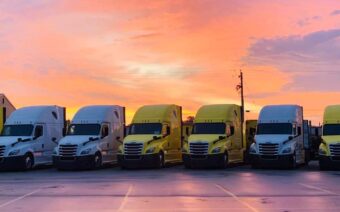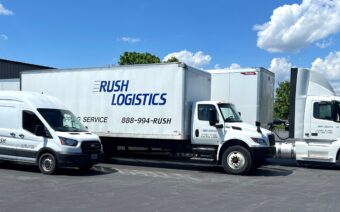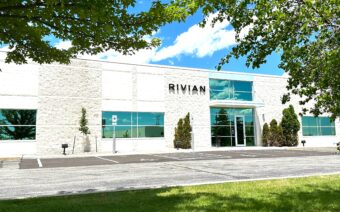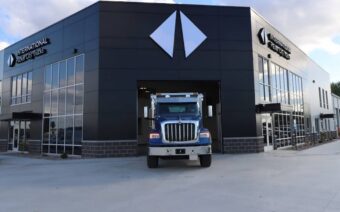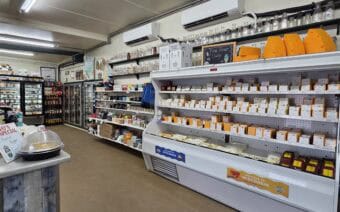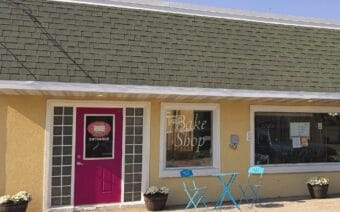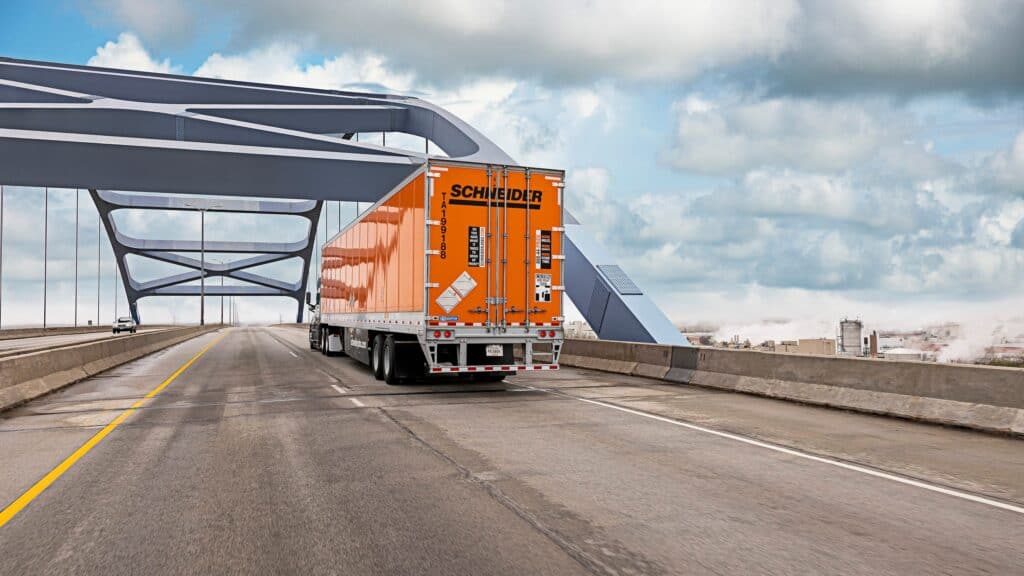
June 30, 2025
GREEN BAY – Schneider – the transportation and logistics powerhouse known on roadways around the world for its bright orange trucks – is celebrating 90 years in business in 2025.
And although Schneider racks up an average of 9.1 million freight miles every day, Jim Filter – executive vice president and group president at Schneider – said the trucks are only one of the transportation solutions for which the company is now known.
Today, Filter said Schneider is one of the largest for-hire carriers in North America, offering truckload, intermodal and logistics solutions.
These, he said, in turn, transport a wide range of products throughout North America – with 280 locations, more than 10,000 drivers and nearly 20,000 associates serving more than 1,000 customers.
By the numbers
Filter said the company features three verticals:
- The truckload most people recognize on highways (about $2 billion in annual revenue)
- Intermodal – which combines truck and rail transport (about $1 billion in annual revenue)
- Logistics – such as warehousing and supply chain management (about $1 billion in annual revenue)
Within trucking, Filter said about 70% is dedicated and 30% network, meaning the majority of the drivers hauling goods do so for regular customers or routes.
“When we went public, about 75% was a random network, going anywhere, and the remainder was dedicated,” he said. “(Nowadays), this allows drivers to get home more frequently, if not every night. And for customers, it creates a more reliable supply chain.”
The company’s intermodal business – which ranks second in volume – Filter said, is also its fastest-growing business.
By combining trucks and railroads for the delivery of goods, Filter said intermodal is taking some trucks off the road.
And on the logistics forefront, Filter said Schneider offers warehousing, supply chain management and port logistics.
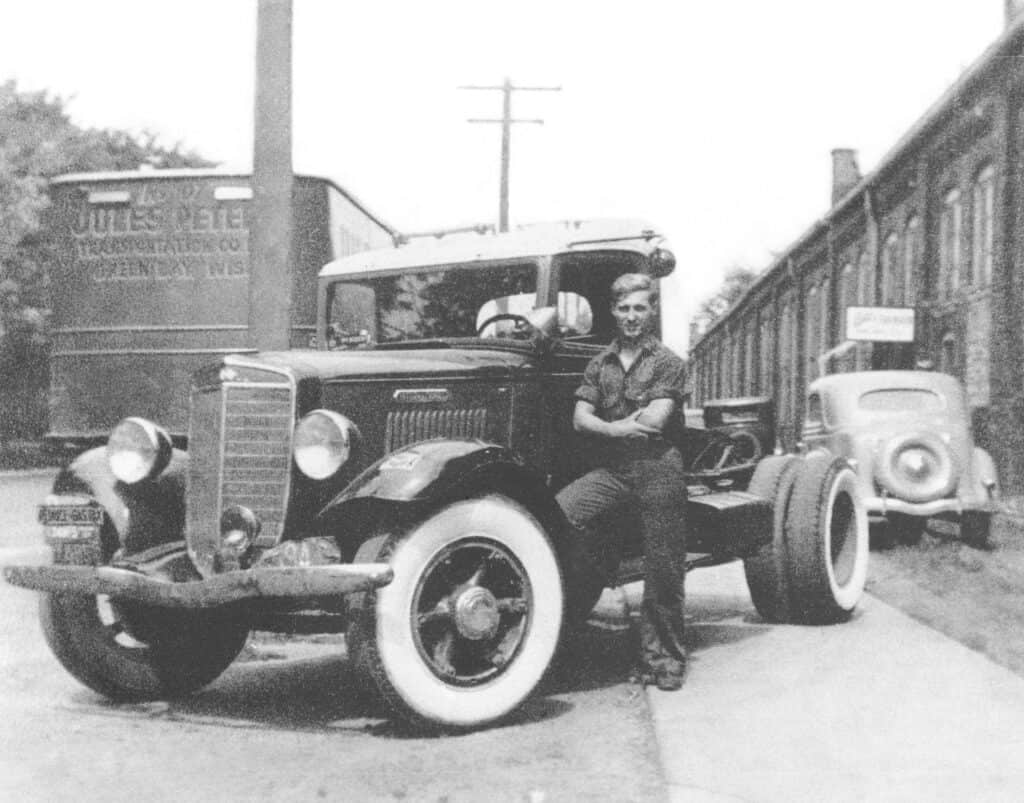
He said it’s the collective offerings – and level of sophistication in those offerings – that set Schneider apart from its competition.
“Most of our competitors have one service offering they’re good at, maybe two,” he said. “But what differentiates us is not just the breadth of services but being an industry leader in each one of those services. We are the No. 1 or No. 3 player in (our services). If you go down the line, you’ll see we are not just dabbling in these areas. The impact to the customer is that we have a lot of solutions when they need to mix different service offerings, and our ability to flex up and down for a customer really differentiates us.”
Collectively, Filter said the work is driven by an elaborate operation headquartered in Green Bay.
Among other things, he said, the building is home to the customer service floor, a large, dedicated space designed for efficient and effective customer interaction described as a full acre in size.
There, and elsewhere on the property – including The Grove Innovation Center – Filter said innovation abounds.
Innovation fuels offerings
The breadth and depth of innovation at work every day at Schneider is industry leading, Filter said.
The Grove Innovation Center, he said, is a dedicated presence for innovation, with the 20,000-square-foot facility built to foster innovation and collaboration not only among Schneider associates but also customers and industry partners.
The goal, Filter said, is to explore and implement cutting-edge technologies to drive advancements in the supply chain and logistics ecosystem.
Innovation, he said, is performed with a mindfulness of the front line and the driver experience.
“Innovation is clearly something that has helped us create better networks and a better driver experience,” he said.
In 1986, Filter said Schneider was the first trucking company to install two-way satellite communication devices in all over-the-road trucks.
Today, he said, that has evolved to tablet-based technology to both enhance the driver experience and improve operational efficiency.
Schneider’s tablet-based platform, Filter said, provides drivers with access to crucial information, communication tools and productivity enhancements.
Simultaneously, he said the company uses tablet-based telematics to monitor truck data, improving safety and compliance in the process.
Filter said this is just the latest in several generations of telematic solutions Schneider has not only embraced, but created.
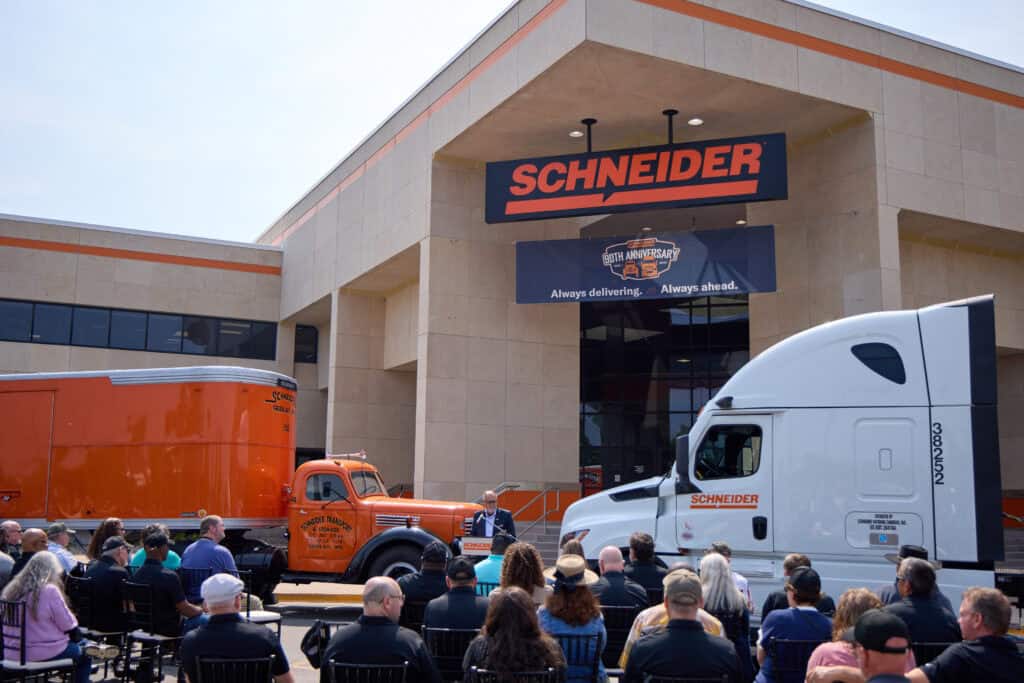
“The tablets help (drivers) through their workflow, allowing them to walk up to the customer and not be tethered to the truck,” he said. “Tablets connect to gates as well, opening when a driver pulls through. That gives us an advantage over other companies that don’t have that type of technology. The key is to invest in technologies that are going to improve the customer or driver experience.”
Filter said Schneider has continued to introduce technological advancements to benefit its customers as well.
More recently, he said Schneider created FreightPower® – an innovative, online marketplace that gives customers complete freight management, allowing them to quote, book and track shipments in real time.
Filter said he recognizes the industry keeps evolving, and that includes opportunities to embrace AI.
“We have been using AI for a number of years, as it plays a role in how prices are set and how we engage with customers,” he said. “It keeps building on itself to provide a better experience (for drivers and customers).”
Filter said the mere existence of an innovation-focused building is representative of the company’s commitment to ongoing innovation.
“We celebrate innovation, and we are using that building so someone who says, ‘I have an idea but I haven’t thought through it’ can build that out,” he said. “Then, every year, we have Presidential Awards that look back and celebrate the innovations (brought) forward.”
A series of milestones begins with a single truck
Schneider had very humble beginnings in 1935, when – according to schneider.com – Al Schneider sold the family car to buy the company’s first truck, then purchased Bins Transfer and Storage, renaming it Schneider Transport & Storage.
In the process, per the website, Al expanded Schneider’s ability to transfer some of Wisconsin’s staple products, and did so with the introduction of its first orange truck in 1944.
The business grew significantly in 1958 when schneider.com states it received its first interstate authority to move beyond Wisconsin borders and made its first interstate haul to Michigan for Procter & Gamble – another company with deep connections in the Greater Green Bay market.
Filter said being located in Greater Green Bay offers great positioning.
“This is an area that’s been a hotbed of activity for supply chain management, partly because of the paper companies that existed here and the value they brought prior to 1980,” he said. “(It was a matter of) where those products needed to get to across the country.”
Per the website, the company experienced a shift in 1961 when Al’s son, Don – who is known for ushering in an era of growth and calculated risk-taking – joined the company.
The Motor Carrier Act of 1980, Filter said, significantly impacted Schneider, as it deregulated the trucking industry and allowed the company to compete based on service, price and capabilities.
“That changed everything as (trucks) could go anywhere, and we immediately had competition,” he said. “Most companies that existed prior to 1980 went out of business then – only a small number of carriers survived and thrived through that, and Schneider was one of those.”
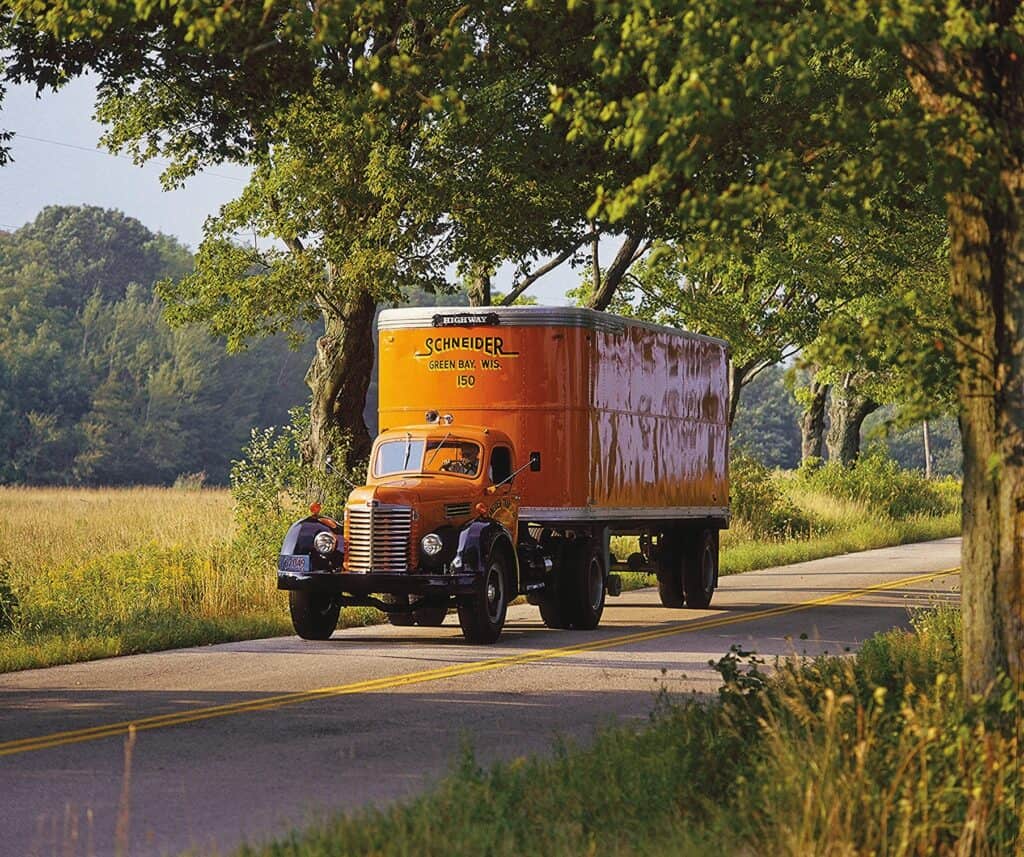
In 1991, per schneider.com, Schneider entered the intermodal space, investing in strong rail relationships and in company-owned chassis as well as opening an office in Mexico.
Brokerage was formed in 2001, and in 2002, Chris Lofgren took the helm of the company as president and CEO, according to the website.
The company achieved a significant turning point in 2017, Filter said, by going public with the business – a move he said allowed Schneider to raise capital to expand its fleet, improve technology and further grow the business.
“Don set up the company to be able to make that transition (to public) when the time was right, and the time was right in 2017,” he said.
In 2019, Filter said Mark Rourke became the company’s president and CEO about the time the world was slammed with COVID-19 and its significant impact on supply chains.
“The most interesting thing about COVID was that people started to understand the complexity of what a supply chain is, end to end, and how it truly works,” he said. “For most people’s entire lives, they have never experienced a disruption unless they lived through a hurricane. They had never had an issue trying to buy something off a shelf. (COVID) helped people understand the complexity (of the supply chain) with the shutdown and then the restart of the planet.”
In 2023, Filter said the company further flexed its values by investing in sustainable efforts, such as the company’s electric charging depot in California.
To expand its presence in the market and/or bolster its software and digital capabilities, Filter said in the last three years, Schneider has acquired three companies – Cowan Systems, LLC, Midwest Logistics Systems and M&M Transport.
Values with a lasting legacy
Though Don stepped away from day-to-day responsibilities in the business in 2002, Filter said his and his father’s values and legacy echo in the company’s culture today.
He said Schneider holds its values of safety, integrity, respect and excellence in high esteem.
“Don was known for having uncompromising values, as in, ‘This is the way we do things – it’s the Schneider Way,’” he said. “You had this consistency that you weren’t going to vary from values.”
At the same time, Filter said Don was an “amazing innovator” who was willing to change things.
“When you’re here, it completely makes sense,” he said. “You do things the Schneider Way until we find a better way, and then we adapt.”
Filter said the Schneider workforce – both in office and on the road – are what energizes him 27 years after joining the organization.
He said he credits the people with his staying power at Schneider – calling many of them friends, as well as co-workers and comrades in maintaining the company’s values.
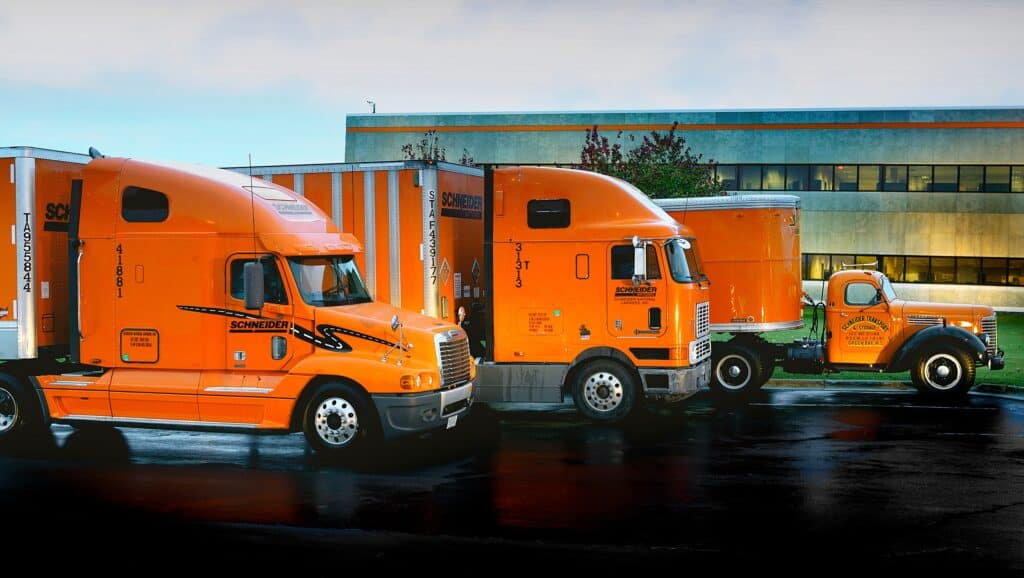
“People expect excellence, and you want to be around people with the same high expectations to work hard, expect great results and have a bit of fun at work, too,” he said. “That’s what has kept me here.”
And Filter is not alone in those sentiments.
Schneider has many very long-term employees, both on and off the road.
Filter said he appreciates the Greater Green Bay market for delivering the talent the company has needed over the decades.
“We’ve been able to find the talent, and it’s multiple generations of people who have worked here as well,” he said.
Though securing enough drivers can be challenging, Filter said having a good reputation figures strongly into why drivers choose Schneider over other opportunities.
“It starts with having a good reputation, but it’s one you have to earn every single day,” he said. “The reputation helps us when we’re out recruiting for talent and keeping talent. It is amazing to look across the organization (and see) how many people have been here for 30, 40 or even 50 years.”
Driving forward
Though the company held a formal 90-year celebration at its headquarters in Green Bay earlier this month – and the team is enjoying reflecting and celebrating – Filter said it’s also keeping a focus on what’s ahead.
“As much as we’re talking about the past 90 years, this is more about reflecting on what got us to this point and looking forward,” he said.
Filter said, to him, that’s about doing “all the little things” right – taking care of associates, customers and the business, alongside consistent processes, shared purpose, a commitment to the company’s values and a mindset of innovation.
“We’re looking for what opportunities are going to propel the business forward,” he said. “It’s about looking back at what enabled this and how the next generation will take the torch and continue (the work) forward.”
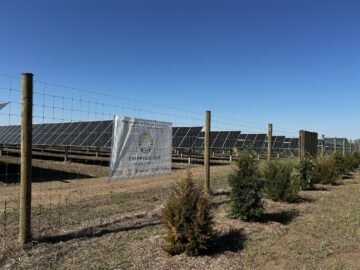 Chippewa Sun rises with solar energy momentum
Chippewa Sun rises with solar energy momentum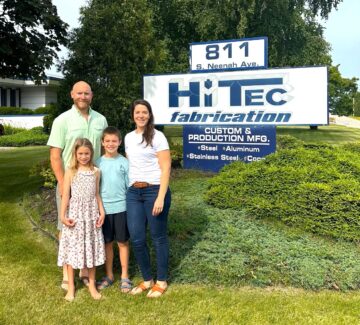 Hi Tec Fabrication – welding dreams, seam by seam
Hi Tec Fabrication – welding dreams, seam by seam

